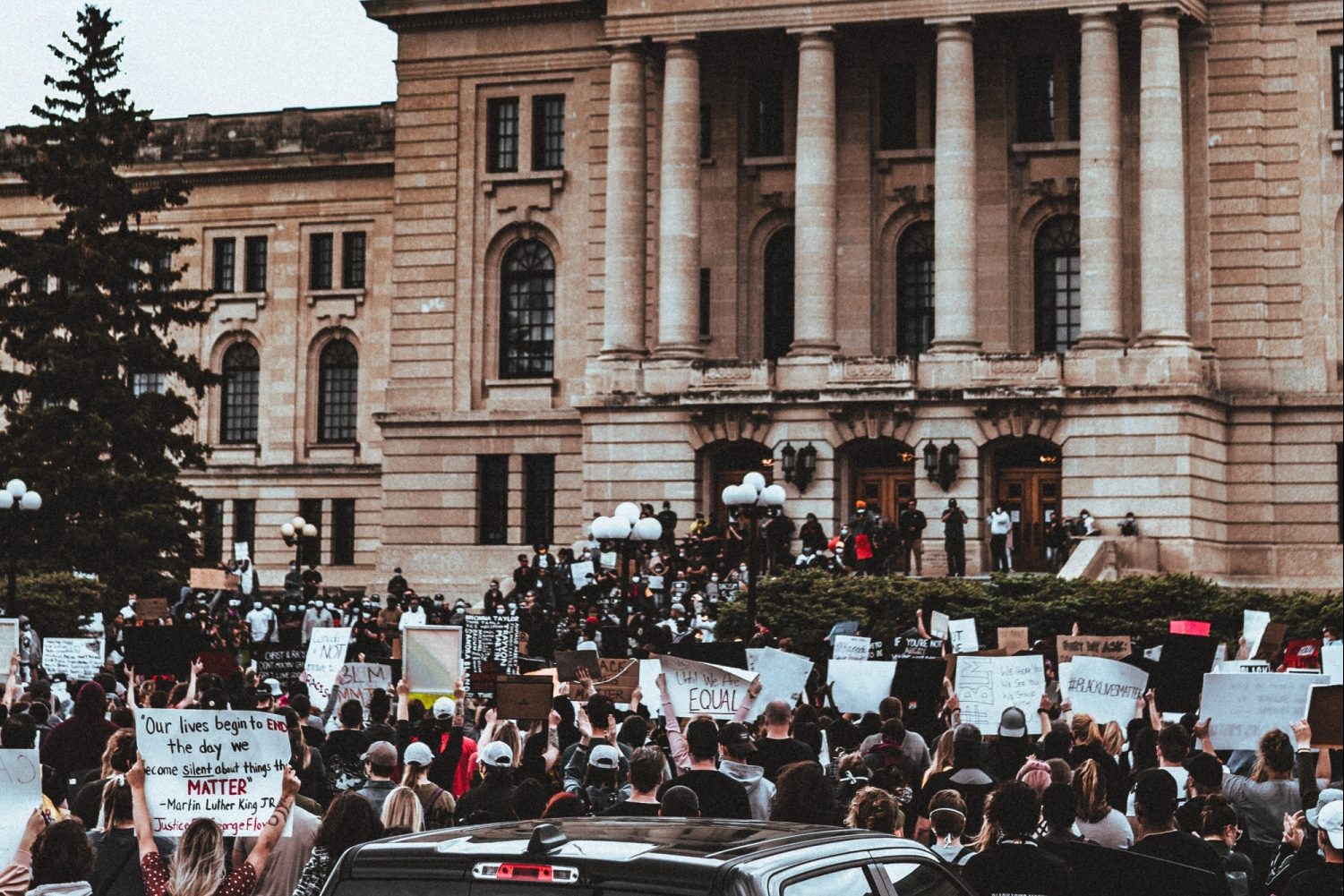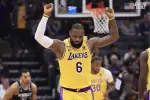The murder of George Floyd on May 25, 2020, has served as a social catalyst, giving the Black Lives Matter movement its second wind. It seems that no lesson was learned between its founding in 2013 after the murder of Trayvon Martin and the abhorrent content plastered on every screen in America today.
Floyd’s harrowing death was the tipping point for millions after hundreds of years of systematic oppression against Black Americans. Countless petitions have surfaced demanding justice for not only George Floyd, but also those who seem to have been forgotten after their cases were silently swept under the rug.
As a result Black Lives Matter launched its 2020 campaign, #WhatMatters2020, to take to the polls in tandem with the African American Policy Forum’s #SayTheirNames campaign.
Many are still asking: Whose names, exactly? Some of the more recent well-known victims of racially charged police violence aside from George Floyd are Breonna Taylor and Elijah McClain, but as you dig deeper into the history of police brutality, this list goes well into the thousands. The campaign urges Americans to remember the names of past police brutality victims, and never forget them.
Justice for George Floyd
The petition created in honor of Floyd has surpassed 18 million signatures and has successfully brought the policemen who murdered the Minneapolis resident to justice. Due to the sheer amount of pushback against the Minneapolis Police Department, Derek Chauvin was arrested and charged with second-degree murder, while the remaining three officers were charged with aiding in a second-degree murder.
George Floyd was arrested at a convenience store in Minneapolis, Minnesota, after an employee called the police claiming Floyd had bought a pack of cigarettes with a counterfeit $20 bill. During the incident, Floyd was pinned to the ground under the knee of Derek Chauvin for an estimated eight minutes and 15 seconds despite Floyd audibly claiming he could not breathe.
On duty with Thomas Lane, Alexander Keung and Tou Thao, Chauvin did not remove his knee even after Floyd lost consciousness, and only did so after paramedics had been on the scene for almost a minute and a half. Floyd died shortly after.
As of June 18, the incident has led to nearly 160 bills at the state level across the U.S., 48 of them being introduced in Minnesota alone. Colorado, Iowa and New York have already passed new policing bills, and there is no doubt that there are more to come.
Even at the federal level, Floyd’s death has inspired the introduction of several laws outlining police-reform measures. The George Floyd Law Enforcement Trust and Integrity Act, introduced on June 4, would require law enforcement agencies on all levels to report the use of deadly force to the Justice Department. It would also offer grants to agencies that hire more nonwhite officers and would create a set of minimum federal standards for police departments.
Other federal acts that were introduced or are being considered following Floyd’s death include the Eric Garner Excessive Use of Force Act, which would make chokeholds and other oxygen-depriving maneuvers illegal, and the Restoration of Civil Rights Act, which would implement various reforms to lawsuits or prosecutions involving law enforcement.
Because of Floyd, the Black Lives Matter movement has had the opportunity to make greater strides toward social justice. As the “Justice for George Floyd” petition gains more signatures, there’s no telling what bills will be passed to ensure an incident like his never happens again.
Justice for Breonna Taylor
Recently surpassing 8 million signatures, the petition created in honor of Breonna Taylor has started to make waves in state and local legislatures as well. Taylor is a large presence in the #SayTheirNames campaign, which has spurred advances in the Black Lives Matter movement.
Breonna Taylor was sleeping beside her boyfriend, Kenneth Walker, early on March 13 when three police officers forcibly entered the home after they received a “no-knock” warrant. This warrant does not require law enforcement to identify themselves and allows them to enter the premises without knocking at any time of the day.
Walker, who is a licensed gun owner, was startled by the plainclothes officers and shot Sgt. Jonathan Mattingly in the thigh in self-defense. The three officers blindly shot 25 bullets in return, eight of which struck and killed Taylor.
The police claimed that they had reasonable belief that Taylor’s home contained large amounts of drugs or was used as a delivery point. There were no illegal substances found on the premises.
As a result, the Louisville, Kentucky, Metro Council passed Breonna’s Law on June 11. The law bans the use of “no-knock” warrants in an effort to prevent any similar incidents. These warrants pose a threat to both officers and civilians, as their guidelines allow for circumstances in which suspects are unaware of the identity of the officers.
Breonna’s law has also made it a requirement that police officers turn on their body cameras prior to a raid, an action that was not previously mandated. On June 23, nearly three months after the incident, the Louisville Metro Police Department announced that one of the officers involved, Brett Hankison, had been fired; the accompanying officers have yet to be held accountable.
Justice for Elijah McClain
Elijah McClain’s petition has surpassed 2 million signatures and calls for investigation into the Aurora Police Department of Aurora, Colorado, after McClain was wrongfully detained by police and sedated by paramedics that arrived at the scene.
McClain was walking home from the store when police received a call regarding a “suspicious” man. McClain was approached by law enforcement officers who proceeded to put him in a chokehold and force him to the ground because of his “agitated mental state.”
McClain was on the ground for more than 15 minutes. Recordings show that during this time he was vomiting and telling the officers that he couldn’t breathe. When the paramedics arrived, they injected him with ketamine, causing him to have a heart attack and slip into a coma. He was later declared brain-dead at the hospital.
On Jun 19, Colorado Governor Jared Polis signed a bill titled Enhance Law Enforcement Integrity. This bill requires law enforcement officers to have a body camera when responding to a call, although this won’t go into effect until July 1, 2023. The bill also requires that all recordings of an incident must be made public within 21 days to promote police integrity.
Although this is a good start and a major win for the local Black Lives Matter movement, the petition has unfortunately yet to fulfill its purpose; Adams County District Attorney Dave Young refuses to reopen the case, stating, “I don’t open up investigations based on petitions.” Many district attorneys before Young have probably operated by the same rule, but as time goes on and these petitions begin to hold more weight, it seems that Young may soon have no choice.
Other Resources
While leaps and bounds have been made by the Black Lives Matter movement, we still have a long way to go. Even with laws being passed and bills being introduced, police violence has skyrocketed in the wake of the protests surrounding George Floyd’s death. Unarmed civilians are being tear-gassed (banned in global warfare) and shot with rubber bullets that are being used incorrectly by peace officers.
Listed below are some resources that may be used to support BLM and other organizations that focus on equality and social justice. Making a difference isn’t hard, but effecting change will take time. Check out the content below, and ask yourself: What can I do to support those around me?
Links to petitions not mentioned in the article:
— Petitions that link BLM and COVID-19
— Petition to ban the use of rubber bullets
— Petition for the Hand Up Act
Links to Resources not mentioned in the article:
— Resources that link BLM and COVID-19
— How George Floyd Was Killed in Police Custody (GRAPHIC CONTENT)
— BLM’s #WhatMatters2020 Campaign Video
— BLM Donation Video (no cash required; don’t skip the ads)
— BLM CARRD – Ways you can help
— BLM CARRD – #BlackLivesMatter
Links to donation pages toward social-justice causes:
















